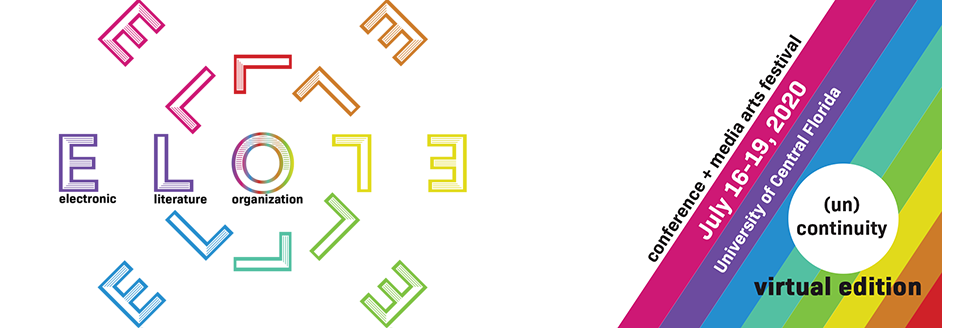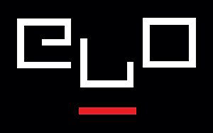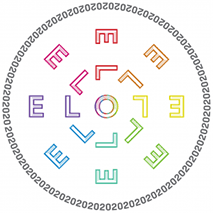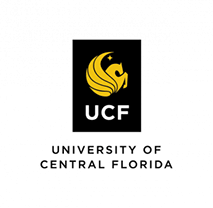Submission Type
Conference Proceedings Paper
Abstract
In 2010, the digital literature piece Déprise was published online (http://deprise.fr). Progressively, it has been translated from French into English (Loss of Grasp, 2010), Italian (Perdersi, 2011), Spanish (Perderse, 2013), and Portuguese (Perda de controlo, 2016). Every translation required changes to the original version in French but also to the other versions, leading to an intercultural and multilingual dialogue between the translators and the author.
What are the specificities of the translation of digital literature in comparison to the translation of literature in general? What does translation teach us about digital literature, and about the Digital? And perhaps we might even ask, what digital literature teaches us about translation? To try to answer these questions, we have asked the different translators for feedback on the translation process: Valerie Bouchardon (English), Giovanna di Rosario (Italian), Martha Asunción Alonso (Spanish) and Diogo Marques (Portuguese). In this paper, we will exploit the written exchanges with the different translators to question the modes of collaboration and the possible necessity for the translator to possess computing skills (Di Rosario & Borràs, 2012), but also the importance of translating the specific dimensions of digital literature (semiotic forms, voices and animations, indirect translations).
Eventually, through the different forms of collaboration between the author and the translators, the translating process turned out to be a truly "transcreative” process, i.e. “a shared creative practice” (Portela, Pold & Mencía, 2018).
References
Bouchardon, S., Bachimont, B. (2013). Preservation of digital literature: from stored memory to reinvented memory, Cibertextualidades N°5, 184-202. Retrieved from http://cibertextualidades.ufp.edu.pt/numero-5-2013/electronic-publishing-models-for-experimental-literature
Bouchardon, S. (2014). "Figures of Gestural Manipulation in Digital Fictions". In Bell, A., Ensslin, A. & Rustad, H. (Eds.), Analyzing Digital Fiction (pp. 159–175). New York, London: Routledge.
Bouchardon, S. (2019). "Mind the gap! 10 gaps for Digital Literature?". Electronic Book Review. Retrieved from http://electronicbookreview.com/essay/mind-the-gap-10-gaps-for-digital-literature/
Cayley, J. (2018). “Translation as process”. In Amodern 8, Translation-Machination, Mitchell, C. & Raley, R. (dir.), http://amodern.net/issues/amodern-8-translation-machination/
Di Rosario, G., & Borràs, L. (2012). "Translating Digital Literature: Two Experiences and a Reflection". Texto Digital, 8(1), 138–162. Retrieved from https://doi.org/10.5007/1807-9288.2012v8n1p138
Fülöp, E. (2018). "Digital cultures: A view from French studies and literature". Explorations in Media Ecology, 17(3), 271–277. https://doi.org/10.1386/eme.17.3.271_1
Gambier, Y. (1994). "La retraduction, retour et détour". Meta : journal des traducteurs / Meta: Translators’ Journal, 39(3), 413–417. https://doi.org/10.7202/002799ar
Marecki, P., & Montfort, N. (2017). "Renderings: Translating literary works in the digital age". Digital Scholarship in the Humanities, 32(suppl_1), i84–i91. https://doi.org/10.1093/llc/fqx010
Marques, D. A. da S. (2018). Reading Digits: Haptic Reading Processes in the Experience of Digital Literary Works (PhD Thesis, Universidade de Coimbra, Portugal). Retrieved from https://estudogeral.sib.uc.pt/handle/10316/81171?mode=simple
Portela, M., Pold, S. & Mencía, M. (2018). "Electronic Literature Translation: Translation as Process", Experience and Mediation. Electronic Book Review. Retrieved from http://electronicbookreview.com/essay/electronic-literature-translation-translation-as-process-experience-and-mediation/
Included in
Translating a work of digital literature into several languages: a case study
In 2010, the digital literature piece Déprise was published online (http://deprise.fr). Progressively, it has been translated from French into English (Loss of Grasp, 2010), Italian (Perdersi, 2011), Spanish (Perderse, 2013), and Portuguese (Perda de controlo, 2016). Every translation required changes to the original version in French but also to the other versions, leading to an intercultural and multilingual dialogue between the translators and the author.
What are the specificities of the translation of digital literature in comparison to the translation of literature in general? What does translation teach us about digital literature, and about the Digital? And perhaps we might even ask, what digital literature teaches us about translation? To try to answer these questions, we have asked the different translators for feedback on the translation process: Valerie Bouchardon (English), Giovanna di Rosario (Italian), Martha Asunción Alonso (Spanish) and Diogo Marques (Portuguese). In this paper, we will exploit the written exchanges with the different translators to question the modes of collaboration and the possible necessity for the translator to possess computing skills (Di Rosario & Borràs, 2012), but also the importance of translating the specific dimensions of digital literature (semiotic forms, voices and animations, indirect translations).
Eventually, through the different forms of collaboration between the author and the translators, the translating process turned out to be a truly "transcreative” process, i.e. “a shared creative practice” (Portela, Pold & Mencía, 2018).
References
Bouchardon, S., Bachimont, B. (2013). Preservation of digital literature: from stored memory to reinvented memory, Cibertextualidades N°5, 184-202. Retrieved from http://cibertextualidades.ufp.edu.pt/numero-5-2013/electronic-publishing-models-for-experimental-literature
Bouchardon, S. (2014). "Figures of Gestural Manipulation in Digital Fictions". In Bell, A., Ensslin, A. & Rustad, H. (Eds.), Analyzing Digital Fiction (pp. 159–175). New York, London: Routledge.
Bouchardon, S. (2019). "Mind the gap! 10 gaps for Digital Literature?". Electronic Book Review. Retrieved from http://electronicbookreview.com/essay/mind-the-gap-10-gaps-for-digital-literature/
Cayley, J. (2018). “Translation as process”. In Amodern 8, Translation-Machination, Mitchell, C. & Raley, R. (dir.), http://amodern.net/issues/amodern-8-translation-machination/
Di Rosario, G., & Borràs, L. (2012). "Translating Digital Literature: Two Experiences and a Reflection". Texto Digital, 8(1), 138–162. Retrieved from https://doi.org/10.5007/1807-9288.2012v8n1p138
Fülöp, E. (2018). "Digital cultures: A view from French studies and literature". Explorations in Media Ecology, 17(3), 271–277. https://doi.org/10.1386/eme.17.3.271_1
Gambier, Y. (1994). "La retraduction, retour et détour". Meta : journal des traducteurs / Meta: Translators’ Journal, 39(3), 413–417. https://doi.org/10.7202/002799ar
Marecki, P., & Montfort, N. (2017). "Renderings: Translating literary works in the digital age". Digital Scholarship in the Humanities, 32(suppl_1), i84–i91. https://doi.org/10.1093/llc/fqx010
Marques, D. A. da S. (2018). Reading Digits: Haptic Reading Processes in the Experience of Digital Literary Works (PhD Thesis, Universidade de Coimbra, Portugal). Retrieved from https://estudogeral.sib.uc.pt/handle/10316/81171?mode=simple
Portela, M., Pold, S. & Mencía, M. (2018). "Electronic Literature Translation: Translation as Process", Experience and Mediation. Electronic Book Review. Retrieved from http://electronicbookreview.com/essay/electronic-literature-translation-translation-as-process-experience-and-mediation/




Bio
Serge Bouchardon is Professor at the Université de technologie de Compiègne (France), where he teaches interactive writing. His research focuses on digital creation, in particular digital literature. As an author, he is interested in the way the gestures specific to the Digital contribute to the construction of meaning. His creations have been exhibited in many venues in Europe, America, Africa and the Middle East.
Website: http://www.utc.fr/~bouchard/
Nohelia Meza completed her PhD in the Translation and Discourse Analysis Department at Pompeu Fabra University (Barcelona) in 2017. Her doctoral research explored how new forms of literariness are depicted in works of electronic literature by developing a transdisciplinary research methodology using theories from Discourse Analysis, Literary Theory, and Electronic Literature. Currently, she develops her postdoctoral research project: “Towards a Digital Rhetoric of Latin American Works of Electronic Literature” at the University of Leeds, UK (2018-2020) under the tutelage of Professor Thea Pitman. She is a member of the Latin American Electronic Literature Network (litElat), the Centre for World Cinemas and Digital Cultures (U. Leeds), and a collaborator of the publishing group (e-literature project) at The Centre for Digital Culture in Mexico City.